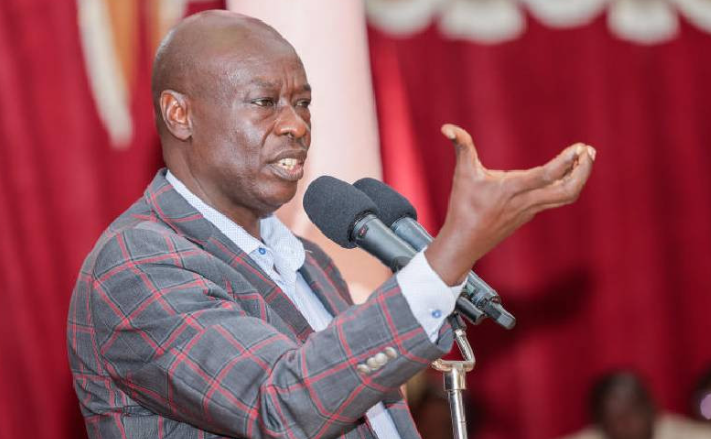The proponents of the motion to impeach Deputy President Rigathi Gachagua have outlined over ten grounds for their case, as the push among a significant number of legislators to remove him gains traction. Reports indicate that five allegations of gross constitutional violations have been highlighted in the motion, with the Deputy President accused of breaching Article 10 concerning national values and principles of governance.
This accusation stems from his public statements, which are described as inciting, reckless, inflammatory, and potentially capable of inciting ethnic hatred and division.
High-level sources in political circles, who possess a copy of the motion, informed The Standard that Gachagua is also accused of violating Articles 147, 148, 174, 186, and 189, which relate to his conduct and responsibilities as the principal assistant to the President.
Additionally, he faces allegations of unlawfully acquiring assets valued at over Sh5.7 billion, an amount deemed inconsistent with his estimated monthly salary of about Sh1 million as Deputy President.
Documents reviewed by The Standard list several properties linked to him, including Tree Tops Hotel, Outspan Hotel from Aberdare Safari Hotels, Olive Gardens Hotel, and Vipingo Beach Resort in Kilifi County, among others, which are said to have been acquired within the few months he has been in office.
“The motion for the removal of Gachagua from his position as Deputy President of the Republic of Kenya has been submitted in accordance with Articles 145 and 150(1)(b) and (2) of the Constitution,” the document states.
“It requires the mover to demonstrate that the Deputy President has grossly violated the Constitution or any other law, or that there are serious reasons to believe he has committed a crime under national or international law, or for gross misconduct,” it continues.
Reports indicate that Gachagua is also being scrutinized for alleged violations of national and international laws, including the National Cohesion and Integration Act, the Anti-Corruption and Economic Crimes Act, the Proceeds of Crime and Anti-Money Laundering Act, the Penal Code, and the Leadership and Integrity Act.
Additionally, the document cites gross misconduct as another basis for his impeachment. One specific allegation is that he unjustifiably and unlawfully attacked High Court Judge Lady Justice Esther Maina and the Director General of the National Intelligence Service, an act deemed to show total disregard for the oath of office he took as Deputy President.
He is accused of insubordination towards the President by publicly contradicting the President’s policy statements and cabinet pronouncements.
“Upon receiving the impeachment motion, the Clerk to the National Assembly will review it and advise the Speaker on its admissibility based on the grounds supporting the motion and the number of members who have signed it. The constitutional threshold requires at least one-third of the National Assembly members, which amounts to 117 members,” the motion states.
If the impeachment motion garners support from at least two-thirds of all National Assembly members, the Speaker must inform the Speaker of the Senate of that resolution within two days.
Following this, the Speaker of the Senate is expected to convene a meeting to hear the charges against the Deputy President within seven days, as mandated by the Constitution.
If, after hearing both sides, the motion is supported by at least two-thirds of all Senate members, the Deputy President will cease to hold office.
“The motion will be moved by a legislator from outside Mt. Kenya, Rift Valley, and Nyanza for obvious reasons. It may be presented by an MP from Eastern,” a highly placed source informed The Standard on Sunday.



